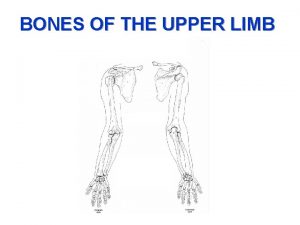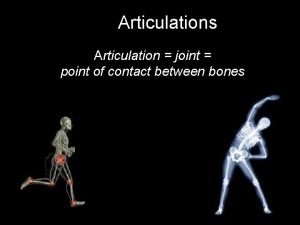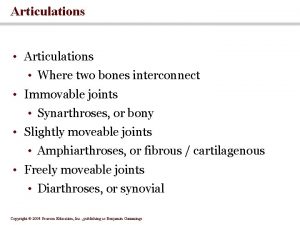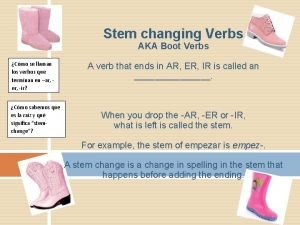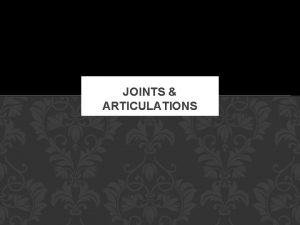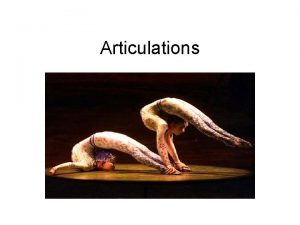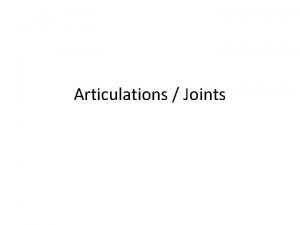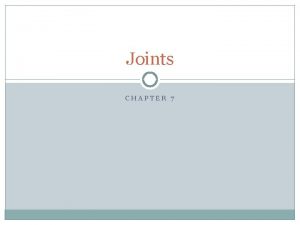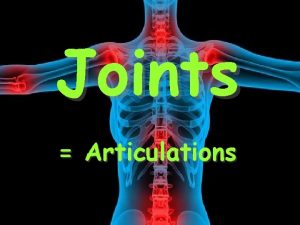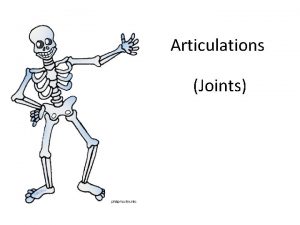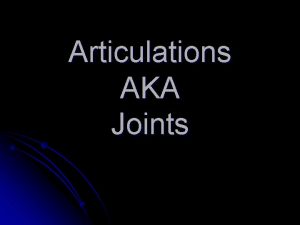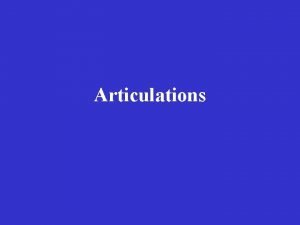Joints AKA Articulations Kinds of joints n n









- Slides: 9

Joints AKA Articulations

Kinds of joints n n n Synarthroses – no movement Amphiarthroses – slight movement Diarthroses – free movement

synarthroses n n n Fibrous connective tissue grows between the bones No significant movement between bones Ex. sutures

amphiarthroses n n n Cartilage connects the bones Ex. Symphysis pubis, vertebrae Herniated disk – when the disk between the vertebrae is pushed into the spinal canal and pushes on the spinal cord

diarthroses n Includes most joints, allows for movement

Types of diarthrotic joints n n n Ball and socket – hip and shoulder, widest range of motion Hinge – movement in 2 directions (flexion and extension), elbow, knee, fingers Pivot – small projection of 1 bone pivots in an arch of another (rotation) atlas/axis Saddle joints – metacarpal bone of thumb and carpal bone, only 1 pair, opposable thumb Gliding – least movable, gliding movements between vertebrae Condyloid – oval projection fits in elliptical socket, wrist

Diarthrotic Joint – the Knee

Diartrotic joint structure n n Joint capsule – fibrous connective tissue, fits over 2 connecting bones, lined with synovial fluid. Ligament – connect bone to bone, fibrous connective tissue Articular cartilage – layer over ends of bones, protection Synovial membrane – secretes fluid, allows for easier movement, less friction

Joint movements n n n Flexion – reduce angle of joint Extension –increase angle of joint Rotation – spin a bone relative to another Circumduction- moving distal end while keeping proximal end stable Abduction – move away from midline, increase angle of joint Adduction – moving part toward midline, decrease angle of joint

